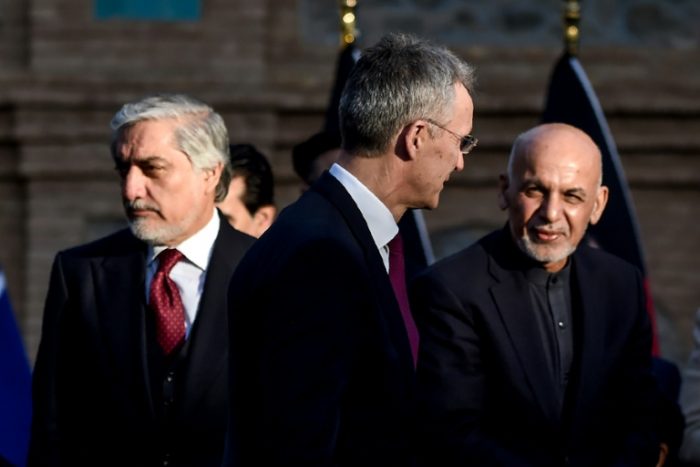Afghans on Monday will witness the absurd spectacle of two inaugurations at the same time, with President Ashraf Ghani and his bitter rival Abdullah Abdullah both claiming the premiership amid fears their bickering could derail upcoming Taliban talks.
The ceremonies will take place under heightened security, with multiple checkpoints set up in Kabul hours before the two men were due to be sworn in.
The war-torn country went to the polls in September but Ghani was only declared to have won a second term in February after repeated delays and accusations of voter fraud, prompting a furious response by former chief executive Abdullah, who vowed to form his own parallel government.
The spat posed a risk to a US-Taliban withdrawal deal signed February 29 in Doha, Washington warned.
But Ghani and Abdullah have shown no willingness to compromise.
Instead, their game of thrones has left many Afghans despairing for their country’s future, worried that Kabul’s politicians will be no match for a unified and resurgent Taliban in any peace talks.
“It is impossible to have two presidents in one country,” said Ahmad Jawed, 22, who urged the men “to put their personal interests aside and only think of their country instead of fighting for power”.
He told AFP that “instead of holding oath-taking ceremonies they should talk to each other to find a solution”.
Afghans have shown little enthusiasm for Abdullah, Ghani or the election process in general. Most of them abstained in last year’s lacklustre poll that saw candidates pitch few ideas or policies.
Unemployment is high, and even university graduates like Jawed are struggling to find work, while violence has continued unabated, except for during a week-long partial truce ahead of the US-Taliban deal.
In the deadliest attack to hit Afghanistan in weeks, Islamic State group gunmen shot dead 32 people and wounded dozens of others at a Friday rally in Kabul commemorating a politician from the Hazara ethnic group.
The Taliban have also ramped up attacks on Afghan forces and civilians.
Experts say the infighting is likely to cost the government, which is already under pressure after being shut out of the Doha negotiations.
According to the agreement signed in Qatar, foreign troops will withdraw from Afghanistan in 14 months, in return for various security commitments from the Taliban and a pledge to hold talks with Kabul.



